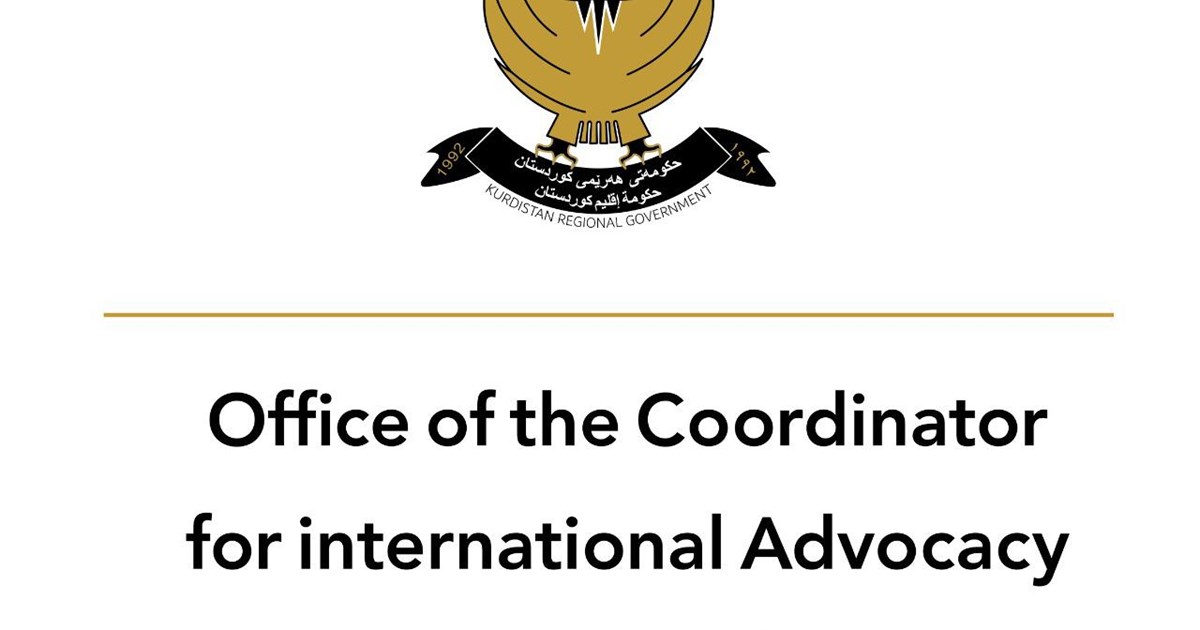Preliminary Clarifications on the 2021 US Department of State’s Country Report on Human Rights Practices

Erbil, Kurdistan Region, Iraq (GOV.KRD) - On April 12, 2022, the U.S. Department of State released its annual Country Report on Human Rights Practices for Iraq. The report considerably addresses the human rights status in the Kurdistan Region.
As far as the human rights assessments are concerned, the KRG Office of the Coordinator for International Advocacy (OCIA) has a coordinate modality with the international counterparts including U.S. Consulate General in Erbil. The latter submitted a list of questions to OCIA on August 2021, framed within a time-limit for verification of requested data and information, in the perspective of balancing judgemental statements that might appear in the report and with the aim of clarifying facts and situations with all available versions and elements necessary to get the full, truthful stories.
Below is a precursory clarification on certain highlights raised in the report. Further elaborations on this statement - within a framework of a thorough report - will be prepared by OCIA and will be circulated accordingly in the near future.
To commence, KRG has established a comprehensive roadmap to influence, shape and mold improvements where needed: Kurdistan Regional Plan for Human Rights. The plan was approved by the KRG Council of Ministers on September 15, 2021. Ever since, the plan has been embodied in the cabinet agenda and it is now an inclusive road-map for legislative amendments and institutional reforms. The regional plan embodies the recommendations posed by local and international counterparts and furnishes commitments to implement them. The plan is currently at the implementation phase, and, in this respect, workshops on various areas of human rights are held to enhance the implementation. Local and international partners have been involved since the beginning of preparing the plan.
As far as the intelligence service structure in the Kurdistan Region is concerned, it is overseen by the Security Council (KRSC), which is a well-established governmental institution, and, while it distributes particular obligations to provinces on the basis of decentralization, it consolidates unified security policies. The same applies to other law-enforcement units.
In terms of the return of IDPs to their places of origin, the Department of State's report acknowledges that e KRG hosted 25 of the 27 IDP camps in the country and committed not to close them until the IDPs returned to their area of origin voluntarily. The overwhelming majority of the returning families are still concerned about the security situation there, and the destruction of their properties in the liberation process. Furthermore, as the report notes, the refugees enjoy freedom of movement and are allowed to work as long as they hold valid residence permits.
The report also raised concerns about the discretion of the judicial authorities. KRG respects the independence of the judiciary, committed to a coherent check-and-balance system, and cannot interfere in the judicial process.
The Kurdistan Regional Government is fully committed to the rule of law, to a fair and impartial legal process, and to the freedom of the media. The Government is currently working with international partners to ensure Kurdistan region is fully meeting its international human rights responsibilities and is following international human rights best practice, in particular in respect of media freedom.
Moreover, KRG endorses and exemplifies the democratic principles of good governance, transparency, freedom of speech, and gender equality in Iraq and in the Middle East.
Moreover, KRG perceives itself as an integral part of the international community. It is therefore part of the well-connected system through which the essential values of democracy are enhanced and reciprocated. The significant presence of diplomats and international agencies in the Region remarkably contributed to the enhancement of these values. KRG has recognised these values to be crucial for good governance.
